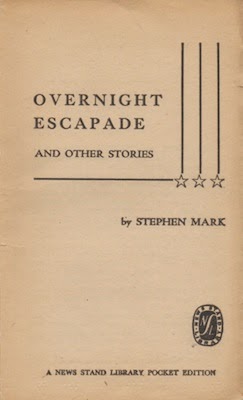Expo Summer
Eileen Fitzgerald
Toronto: Doubleday Canada, 1969
Eileen Fitzgerald's Expo Summer began forty-seven years ago – 28 April 1967 – with the opening of the World's Fair. Mine began the very same day. I was four years old, living with my parents and little sister in suburban Montreal; the author was a second-year McGill student who had just moved into a flat in the city's downtown. I'm fairly certain that our paths crossed.
Expo Summer? Fitzgerald's memoir begins with the solstice more than fifty-five days in the future, yet she manages fewer than 163 pages, a good deal of which have to do with events that occurred in March, during which time she lived in residence at the university's Royal Victoria College.
"Bubbly", says the Province. I wonder what other adjectives they used. The Gazette went with "good":
 |
| 16 August 1969 |
We wandered out of the Guy Street station somewhat lost, since at that time our world in Montreal didn't stretch much further west than Mountain Street.Now, I point out that Guy is only two stops from McGill. Guy Street itself is just eight blocks west of the university campus. The trio find a flat on Mackay, which is invariably referred to – thirty-two times – as "MacKay Street". The Décarie is "DeCarie" and Cedar Avenue is "Cedar Street". The author's flatmates, Lyn and Gate, are just as clueless:
No one knew the exact location of Place Bonaventure except that it was a Metro stop, so we took the Metro from McGill east to the Berri-de Montigny [sic] transfer, and then back west on the other line until we found ourselves in Bonaventure station. Clearly, it was going to be a lively night.
Expo 67 aficionados, of which I am one, will recognize Place Bonaventure as the venue in which François Dallegret held his pre-Expo Super Party, which featured Lothar and the Hand People, Suzanne Verdal, Tiny Tim, and the Blues Project. Juan Rodriguez wrote a very good piece on the event here, but Eileen Fitzgerald's is much more succinct:
They finally did show up on the roped-off stage, which looked like a little boxing ring rising out of the crowds of teenyboppers, costumed hippies, young sophisticates and just passers-by. But by the time we had tuned in to their sound sufficiently to tune out the steady roar of the hall, they had already finished playing and had hurried toward the periphery of the Salle Bonaventure.You really can't expect much by way of observation from a person who doesn't know the name of the street on which she lives.
It's always a mistake for a reviewer to criticize a book for not being what he wanted it to be, but Doubleday did deceive:
A COLLEGE GIRL TELLS US HOW IT WAS AT THE GREATEST WORLD'S FAIR EVER
She attaches herself to a band called the Service Entrance, I think because she has something going on with one of the guitarists. For a couple of dozen pages I thought this might lead to something interesting. The band shares the bill one night with Tim Buckley at the New Penelope, but it ends up as their only Montreal gig. Author and guitarist don't so much as kiss.
Still, it's a memorable summer:
A Swiss chocolate ice cream bar stood right across the way from a Brazilian counter where they sold flavors of sherbet which no one who wasn't a Brazilian had ever heard of before, and we couldn't decide what to get, or forget them all and have Dutch ice cream. Seymour had black raspberry, and I had banana, and Lyn had pineapple rum. Mat volunteered to try the Dutch chocolate across the way. And they all were great.I too ate sherbet at Expo, and though four, had tasted pineapple rum.
The critics rave:
Young Miss Fitzgerald is a student at McGill University and golly, didn't she just practically drool to be in Montreal at Expo time. With her friends Lindsay (the moneyed one) and Gate (no one ever called her Mary) Eileen shares an apartment, works off and on at an Expo postcard palace, and pals with Mat, Josh, Eric, etc., students who were hoping to make a go with their electric rock group, the Service Entrance. Discouragement, and Mat cuts out, but there's a zoomy offer at the close and Mat returns. An occasional cut-up and jolly jape — sneaking into Labyrinth; copping a swim in an alien pool by hopping a rooftop; and the gosh-awful day when Lindsay's mother visits and discovers a boy or two in the bedroom (all innocent as a cub den). Eileen, bless her busy little pen, is undoubtedly the only member of her generation who admits to putting on a "gay summer frock." Dull as dishwater and pure as the drivelling snow.About the author:
— Kirkus, 3 July 1969
A bonus: Not by Suzanne Verdal, but about her.
Object and Access: A slim hardcover in black and brown boards, my Fine first edition copy was bought in January from a bookseller in Woodbury, New York. At US$20, I did well. As of this writing, just one first edition – price-clipped, Near Fine – is listed for sale online (C$25). After that, you're left with a lone book club edition (US$15), and two less than pristine copies of the uncommon Curtis paperback (C$4 and US$4 – take your pick).
Toronto has the only public library to carry a copy. Eleven of our university libraries come through. Expo Summer is not to be found at the author's alma mater.
Related post:
Related plea:
All these years later, I'm still looking for a copy of Winston Smith's Sexpo '69 (North Hollywood: Brandon House, 1969).C'mon, someone's gotta have a copy.
























































